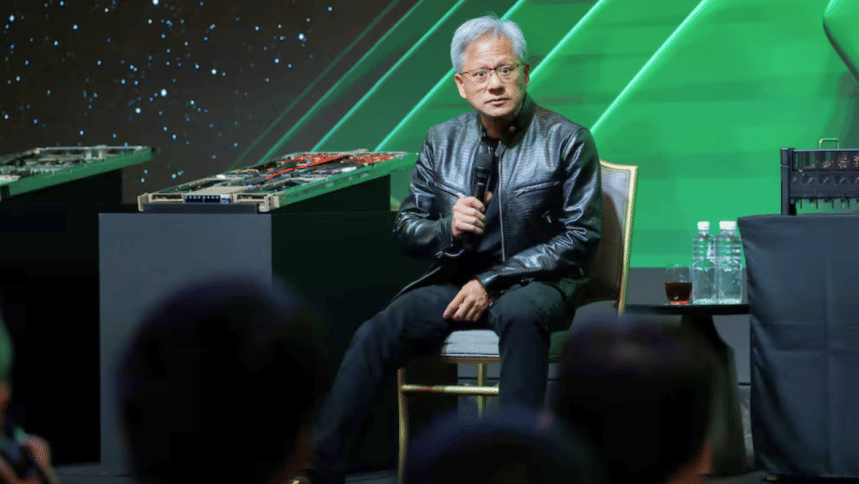Nvidia earnings beat expectations despite US export controls

Nvidia on Wednesday reported earnings that topped market expectations, with a $4.5 billion hit from US export controls being less than the Silicon Valley chip juggernaut had feared.
However, Nvidia Chief Financial Officer Colette Kress warned in an earnings call that export constraints are expected to cost the AI chip titan about $8 billion in the current quarter.
Nvidia in April notified regulators that it expected a $5.5 billion hit in the recently-ended quarter due to a new US licensing requirement on the primary chip it can legally sell in China.
US officials had told Nvidia it must obtain licenses to export its H20 chips to China because of concerns they may be used in supercomputers there, the company said in a Securities and Exchange Commission filing.
The new licensing rule applies to Nvidia graphics processing units, or GPUs, with bandwidth similar to that of the H20.
"China is one of the world's largest AI markets and a springboard to global success," Nvidia chief executive Jensen Huang said in an earnings call.
"The platform that wins China is positioned to lead globally; however, the $50 billion China market is effectively closed to us."
Nvidia cannot dial back the capabilities of its H20 chips any further to comply with US export constraints, winding up forced to write off billions of dollars on inventory that can't be sold or repurposed, according to Huang.
"The US has based its policy on the assumption that China cannot make AI chips," Huang said.
"That assumption was always questionable, and now it's clearly wrong."
China's AI is moving on without Nvidia technology, while that country's chip-makers innovate products and ramp up operations, according to Huang.
"The question is not whether China will have AI; it already does," he said.
"The question is whether one of the world's largest markets will run on American platforms."
The new requirements resulted in Nvidia incurring a charge of $4.5 billion in the quarter, associated with H20 excess inventory and purchase obligations "as demand for H20 diminished," the chip-maker said in an earnings report.
US export constraints stopped Nvidia from bringing in an additional $2.5 billion worth of H20 revenue in the quarter, according to the company.
Nvidia said it made a profit of $18.8 billion on revenue of $44.1 billion, causing shares to rise more than four percent in after-market trades.
Huang said demand for the company's AI-powering technology remains strong, and a new Blackwell NVL72 AI supercomputer referred to as a "thinking machine" is in full-scale production.
"Countries around the world are recognizing AI as essential infrastructure -- just like electricity and the internet -- and Nvidia stands at the center of this profound transformation," Huang said.
Nvidia high-end GPUs are in hot demand from tech giants building data centers to power artificial intelligence.
The company said its data center division revenue in the quarter was $39.1 billion, up 10 percent from the same period last year.
The market had expected more from the unit, however.
"Nvidia beat expectations again but in a market where maintaining this dominance is becoming more challenging," said Emarketer analyst Jacob Bourne.
"The China export restrictions underscore the immediate pressure from geopolitical headwinds but Nvidia also faces mounting competitive pressure as rivals like AMD gain ground," said Emarketer analyst Jacob Bourne.
Revenue in Nvidia's gaming chip business hit a record high of $3.8 billion, leaping 48 percent and eclipsing forecasts.
The AI boom has propelled Nvidia's stock price, which has regained much of the ground lost in a steep sell-off in January triggered by the sudden success of DeepSeek.
China's DeepSeek unveiled its R1 chatbot, which it claims can match the capacity of top US AI products for a fraction of their costs.
"The broader concern is that trade tensions and potential tariff impacts on data center expansion could create headwinds for AI chip demand in upcoming quarters," analyst Bourne said of Nvidia.

 For all latest news, follow The Daily Star's Google News channel.
For all latest news, follow The Daily Star's Google News channel. 



Comments